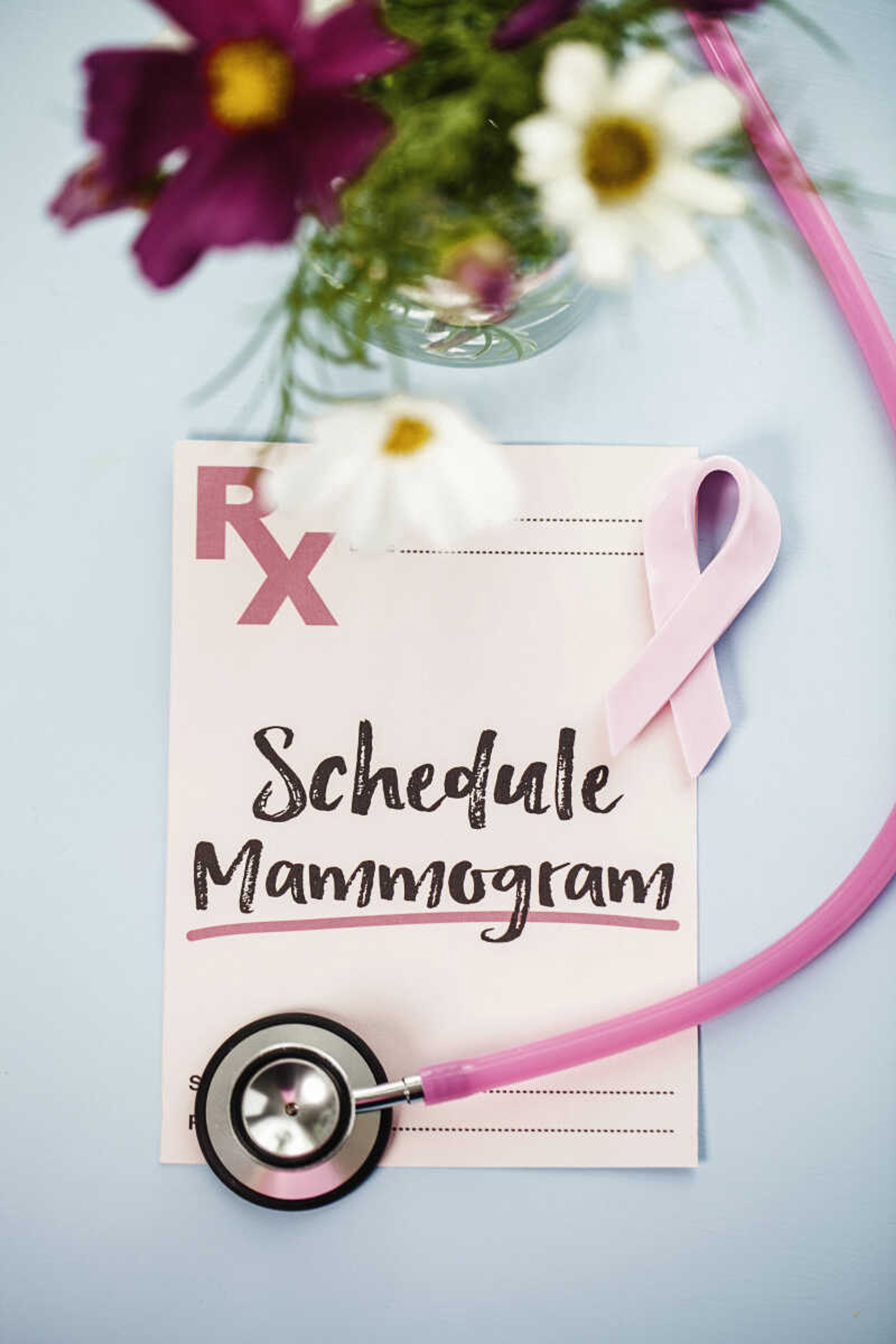Breast Cancer Preventative Measures
One in eight women will have breast cancer in their life, according to breastcancer.org. Being diagnosed with cancer can lead to emotions of fear, sadness and anger for both the patient and her loved ones. The prevalence of cancer stories from friends and the media can also lead to anxiety or fear of receiving a cancer diagnosis after a mammogram or other screening. ...
Now is better than later
One in eight women will have breast cancer in their life, according to breastcancer.org. Being diagnosed with cancer can lead to emotions of fear, sadness and anger for both the patient and her loved ones. The prevalence of cancer stories from friends and the media can also lead to anxiety or fear of receiving a cancer diagnosis after a mammogram or other screening. While it�s normal to feel fear about cancer, experts agree there are some preventative measures you can do to help reduce your risk.
__Lifestyle factors__
While a healthy lifestyle cannot always prevent breast cancer, certain practices can help reduce risk or lead to early detection. The most important piece of information is knowing your family history. The risk of developing breast cancer nearly doubles when a close relative such as your mother, sister or daughter has been diagnosed with breast cancer, according to breastcancer.org.
Dr. Yifan Tu, hematologist-oncologist at SoutheastHEALTH, says if you don�t know your family history, now is the time to pick up the phone.
Tu also advocates for a healthy lifestyle. Factors such as alcohol consumption, obesity, lack of exercise or vitamin deficiencies are correlated with an increased risk of breast cancer. People who exercise and eat a well-balanced diet often control other health problems and are more likely to know when something is not right with their body.
Annual physicals are a critical component to a healthy lifestyle, as are breast exams to check for lumps or other abnormalities. While breast self-exams are not promoted as widely as they used to be, Tu believes these are a powerful tool for early detection. However, the true power of the breast self-exam is when it is completed in conjunction with annual physicals.
�The breast self-exam can catch lumps that prompt a checkup by the primary care doctor,� Tu says. �Self-exams can also find lumps between mammograms, which are a reality.�
__Early detection__
Along with breast self-exams and annual physicals, mammography is a critical component of early detection of breast cancer. The mammogram is a straightforward procedure using an x-ray machine to take a picture of the flattened breast tissue. The procedure takes approximately 20 minutes from start to finish.
There is controversy about when women should begin getting mammograms. While the U.S. Preventive Services Task Force, an independent panel of experts in primary care and prevention, recommends women ages 50 to 74 should receive mammograms, screening can begin at age 40 due to risk factors and family history. Dr. Carlos Robles, hematologist-oncologist at Saint Francis, suggests women get a baseline screen at age 35 and then offers the choice to start regular screenings at 40.
While many believe breast cancer patients are doing well because of better treatments, Dr. Robles also thinks patients have better outcomes because doctors now find cancer in its earlier stages. Discovering cancer in stage one, as opposed to stage three or four, has a significant impact on quality of life and survival rate.
�With 85 to 90 percent cure rates for stage one cancers, early detection remains the most important thing we can do,� Robles says. �That�s why we believe education, knowledge and awareness are so important.�
__Advocating for your health__
Your body is your engine. Just as your car needs regular maintenance and tune-ups, you must do the same for your health. Advocating for your health means taking charge of creating a healthy lifestyle, engaging in preventative screenings and finding a provider you trust.
Dr. Erin E. Ezzell, hematologist-oncologist at SoutheastHEALTH, believes in an open, trustworthy dialogue with your doctor.
�If you are seeing someone that you are not comfortable with for whatever reason, then you should find another provider,� Ezzell says. �Without this trust, things can be missed, and you won�t get the care that you need.�
A strong relationship with your healthcare provider will help you in stressful times because they will understand your support system and your coping skills. Ezzell explains anxiety about cancer screenings can come in many forms such as logistical or financial issues that can cause more stress than the actual possibility of the diagnosis itself. Having that relationship with your doctor allows them to ease those concerns and provide help and resources along the way.
For many women, even the thought of breast cancer screenings can be anxiety-provoking. The good news is that most women can survive breast cancer when it is found early.
Today�s cancer screening and treatment are not the same as what your mother and grandmother may have experienced. Tu, Robles and Ezzell agree the cancer treatment field is exciting because it continues to evolve, getting better for the patient every day.
So if you have been putting this off, consider this your sign � schedule your screening today.
Connect with the Southeast Missourian Newsroom:
For corrections to this story or other insights for the editor, click here. To submit a letter to the editor, click here. To learn about the Southeast Missourian’s AI Policy, click here.










